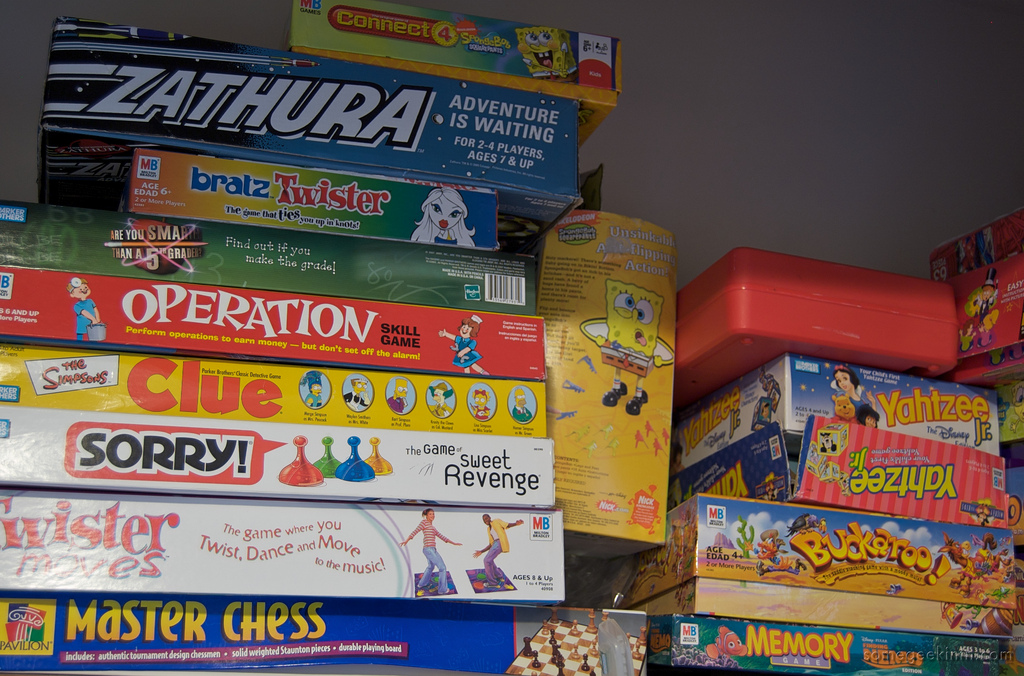We live in the technologically advanced, futuristic age of our own childhood dreamings. The world our kids will live in is going to look even more like a sci-fi film and technology will be integrated with almost every aspect of their lives.
That comes with a lot of great upsides, but as almost every sci-fi film explores, it also comes with dangers. Both obvious and unexpected.
Individual play vs relationship building play
Today I want to think a bit about play and especially about the importance of parent / child play time. Looking around me I see that screen based play has come to take a very large place in our kids lives. It’s not bad in and of itself, in fact it’s often a very healthy and positive activity. But we see more and more that screen time has an ability to displace other activities from our kids’ lives, including relationship building.
Classical child raising systems and theories didn’t really provide for the possibility that kids might choose to spend a big portion of their life in the imaginary world created by computer games and online videos and neglect other important areas of their development.
Perhaps the easiest sounding step towards solving this problem is that we need to start playing together with our children and having meaningful family time. But as always, it’s much easier to say than to do. So how do we help them make this transition from solely computer game based fun to something a bit more real?
Why computer games?
To start off, it might help to think about why kids choose computer games over other activities:
- Children find a large amount of freedom in computer games. Freedom that in most cases is not available to them in real life. Inside games the complex and largely unvoiced social rules which govern most of their life are replaced with simple, quickly learnable game rules which the child can manipulate for a quick reward. Within the game they are an active agent of their own success, outside the game they might feel themselves an unwilling or unwitting pawn to rules they don’t understand. This illusion of reality management can be a really powerful motive for playing computer games.
- Games stimulate kids’ imagination by involving them in new, bright and active worlds. That’s one of the reasons why children (and (let’s not fool ourselves) adults too) can spend many hours playing on their computer or phone without noticing how much time has passed.
- Many things which are relatively complicated in the real world are quite easy to do while playing a game. Gaining proficiency in some skill, (especially a skill that their parents don’t have) can be a big motivator.
- Most games are designed to have an addictive quality to them. From daily log-in prizes and a misleading sense of early mastery to catchy, earworm background tunes and regular updates or expansions, game developers understand how to make games that draw people in for long periods of time and have them coming back on a regular basis.
- The lead characters of many games are very attractive to kids. Whether their main appeal lies in humour, cuteness, coolness or any other aspect of their design, it’s no surprise to me that even playing make believe, away from the screen, children often choose to play the part of computer game characters.
From virtual to real world fun
Having thought about what makes computer games attractive to our kids, (maybe you thought of a few more reasons your kids engage well with computer games – let me know in the comments below) now it’s time to try and find ways to transition them across to some real world games.
The freedom and control element I mentioned above is a very attractive part of computer games. Kids often have a competitive edge. They’re looking for opportunities to expand their capabilities, establish their space and to improve their status. Inside a game they have a great chance to become a winner.
My son, like many of his peers, likes to play different combat games on his computer or tablet. He likes to master (through his game alter-ego) different karate kicks or sword techniques. I take this as a source of inspiration and from time to time we play some real “combat” games using wooden swords to fence or setting up battle scenarios with his toys.
I also mentioned the role of imagination and the attractiveness of game characters. Imagination is one of the keys to success in creating an attractive and compelling real world game environment. My son is a big fan of superheroes, so we incorporate them into a wide range of activities. Whether it’s playing with Lego figures or pretending to be superheroes ourselves. We discuss our names, what super powers we have and what our weak spots may be. We even make temporary superhero costumes from old clothes.
More tips for parents
Sometimes we feel that our ability to entertain our kids is limited by something beyond our control. We don’t have the time right now. We don’t have the money right now. It might be true, but don’t let it stop you!
I remember a time when I couldn’t easily find money for a cinema or arcade trip, but wanted to treat my son to some quality time “out and about”. So we went to a big shopping mall and went up and down the escalators making faces and doing other funny things. Then I made a race for him in a shopping cart and we watched and laughed at some advertisements being shown on a big screen. I spent a little money on a juice box and chocolate bar and somehow, we’d had an amazing afternoon of father and son bonding. We remind each other of those times to this day.
I tell this story just to illustrate that even if you think there’s some obstacle to you engaging with your kids, with some creative effort on your part, those obstacles can be overcome.
Of course, you can even can play computer games together with your child. Whilst it might not be your traditional way of understanding parent/child bonding time, it can still be really valuable. Any sort of communal play is an important type of family time. You may even enjoy it!
If a child lacks deep friendships or significant relationships, computers can easily come to take this role in their life. This is a real problem for many in the present, digital era. Build these relationships now, in part by playing games together with your child. Now’s your chance.





